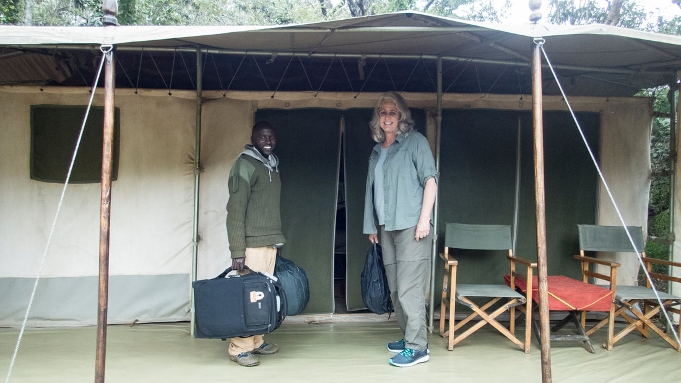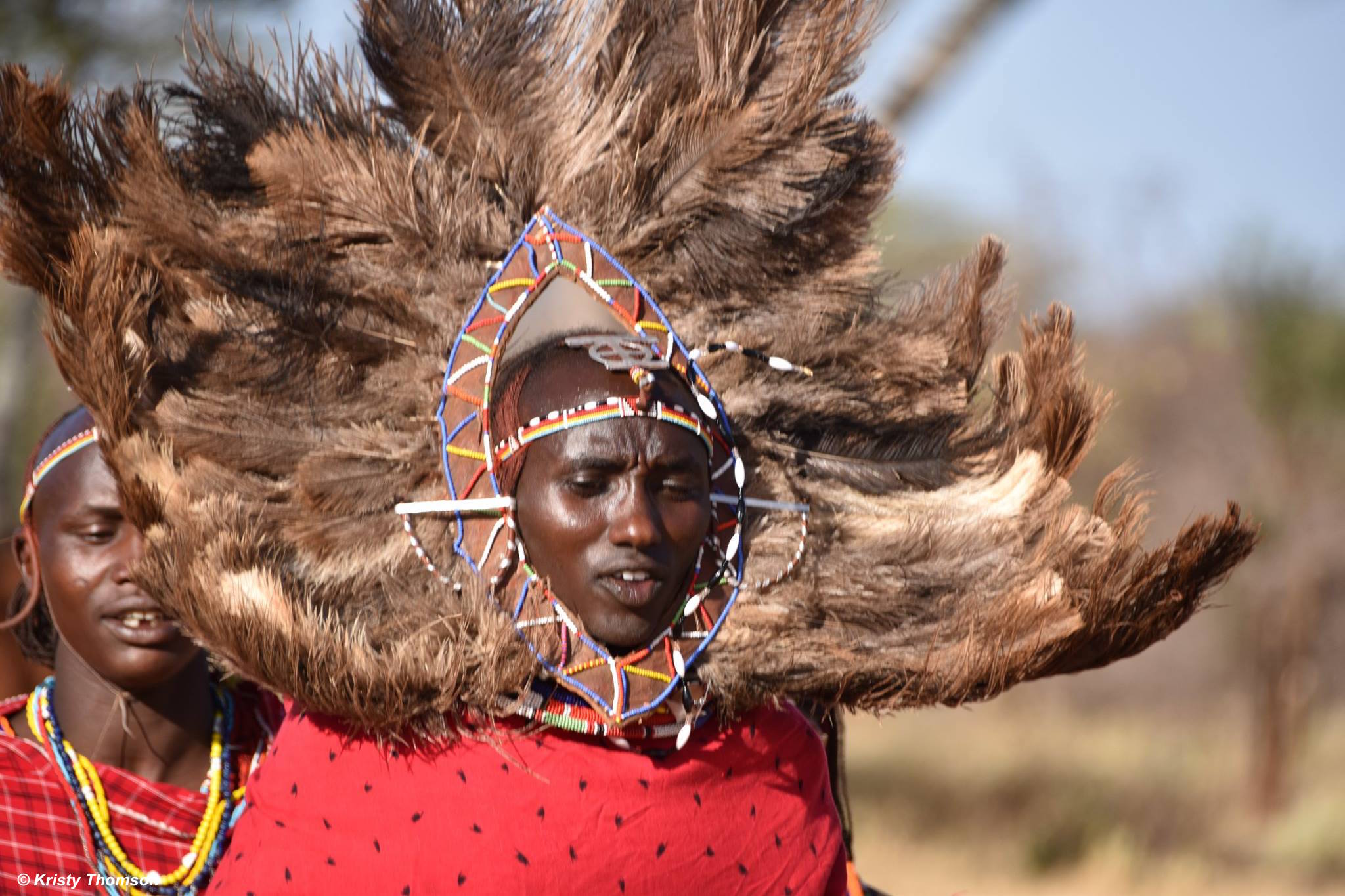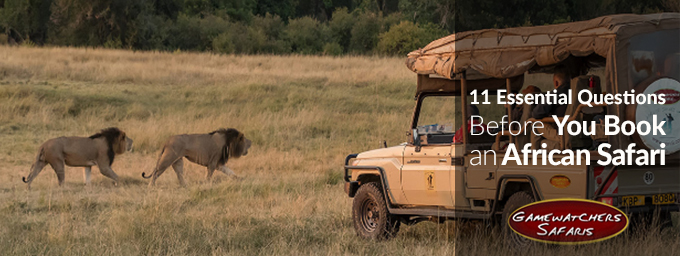
Ever imagined yourself on a wildlife viewing safari in Africa? Maybe it’s been a dream since childhood, or maybe it’s a new idea that sparked later in life – either way, you can’t wait to get on the African savannah plains and set out on a new adventure accompanied by an expert safari guide to watch the iconic wildlife!
But before you pack your bags, slather on sunscreen, and spray the insect repellant, a little planning needs to be done. While making your travel arrangements, be sure to ask yourself these 10 essential questions:
1. Where in Africa do you want to safari?
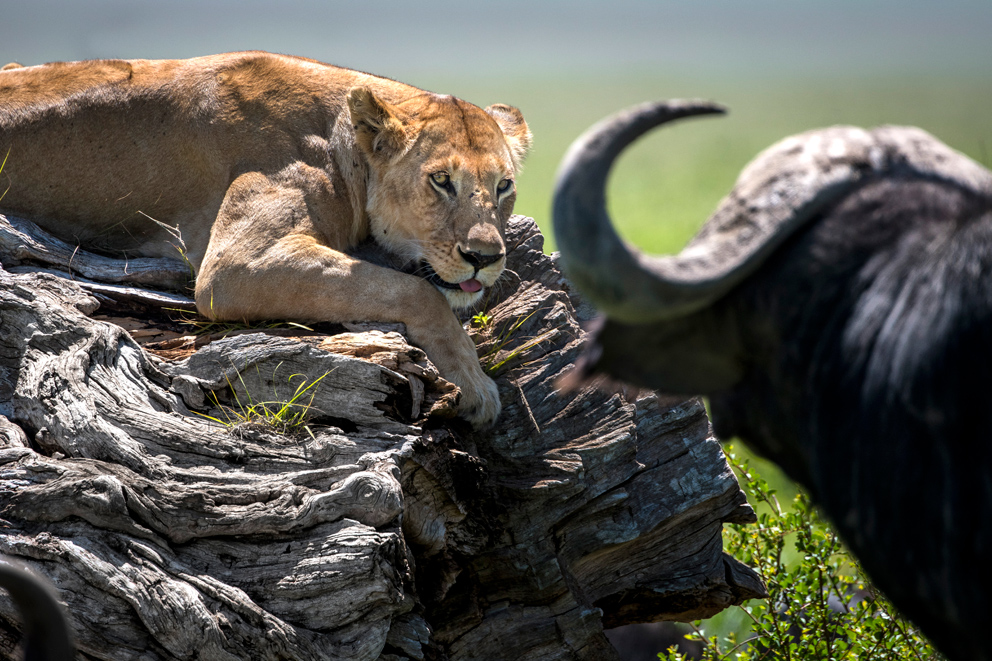
Image taken by Porini Camps guest Paolo Torchio
It is important to remember that Africa is a rather large continent composed of more than 50 different countries! Before booking your safari, consider which country it is that you want to visit. The main safari destinations for wildlife viewing and photography are in Southern Africa (Botswana, Namibia, South Africa), Eastern Africa (Kenya, Rwanda, Tanzania, Uganda) and Central Africa (Zambia, Zimbabwe).
Tanzania is home of Mt. Kilimanjaro, Africa’s tallest mountain and the famous Ngorongoro Crater and Serengeti National Park.
Kenya is where the magic truly happens. You can spot all the Big Five (lion, leopard, buffalo, rhino, and elephant) in Ol Pejeta Conservancy and there is a wide selection of excellent wildlife parks, reserves and conservancies to choose from. Maasai warriors act as guides, enriching your experience while staying in the bush. The Great Wildebeest Migration travels through Kenya, and throughout the entire year there are hundreds of different species to see.
Botswana is the size of France but has a total population of only 2 million, which is smaller than many of America’s states! There is certainly a feel of “getting away from it all” when taking a safari there.
Zambia is known for its breathtaking vistas, including the incredible Victoria Falls. The waterfall straddles the Zambia-Zimbabwe border, and its mist can be seen from up to 12 miles away.
Love gorillas? Rwanda and Uganda offer Mountain Gorilla safaris where you can track them in the rainforest. With less than 1,000 of these beautiful creatures in existence, education is crucial for their survival. And what’s a better way to educate yourself than to see them in person?
South Africa provides a unique experience for those who appreciate additional activities during a safari. For instance, explore all that Cape Town has to offer like Table Mountain. Or relax on one of the hundreds of beaches on Africa’s southern coast.
2. Which country should you choose for your first wildlife viewing safari?

This is what Brian Jackman, one of the UK’s best-known travel writers on Africa, had to say, writing in the Daily Telegraph newspaper:
“So where should you go for your first taste of safari life? Africa is so vast, its horizons so wide. Some of its big-game strongholds are the size of small countries. Among the finest are Botswana’s Okavango Delta, Zambia’s Luangwa Valley and South Africa’s Kruger National Park. But if you are planning a once-in-a-lifetime sojourn in the bush it has to be East Africa. Nowhere are animals so visible as on the high plains of the Maasai Mara and Serengeti, and the land itself is quite something. Ease of access makes East Africa a natural favourite for first-timers. It takes only eight hours to fly from London to Nairobi. If you catch an overnight flight from Heathrow you can transfer to a light aircraft next morning and be in the bush in time for brunch. Such things are possible in Nairobi because Kenya’s safari industry is backed up by an efficient tourist infrastructure with a dazzling choice of camps and lodges to suit all budgets. This is, after all, where modern safaris were invented back in the Twenties.”
We agree with what Brian says and for people living in countries outside of Africa we recommend that for your very first safari you should choose Kenya, in East Africa, for these reasons:
- Wide choice of International Airlines for daily flights to Nairobi with competitive fares and only 8 hours flying time from London.
- Good range of international hotels in Nairobi for first or last night before or after the safari.
- Excellent parks, reserves and wildlife conservancies with huge variety of wildlife and good choice of excellent safari camps and lodges.
- Easy access to the best-known wildlife parks in Africa by daily scheduled light aircraft flights from Nairobi.
- Friendly, hospitable people who speak English and who welcome visitors.
- Good standards of service in hotels and long tradition of looking after overseas visitors.
- Opportunity to have a beach holiday after safari at Kenya’s coast or in Zanzibar.
- Add-ons available to Rwanda, Uganda or Tanzania in combination with a Kenya safari.
If you do choose a Kenya safari, then there are some more questions to ask to ensure you choose a safari that will be just right for you – read on!
3. When is the best time to go on safari in Kenya?

There really is no “right” answer because anytime is a good time to visit! Since Kenya is located on the equator, it is considered a “year-round destination.” It really depends on you and what you prefer.
For instance, January-March are the “hot” months. During this time, animals tend to congregate around the watering holes, which provides an excellent view of the wildlife.
April and May comprise Kenya’s rainy season—and some camps close in May when the rains are at their height. But even though there is a good amount of rain, it’s usually at its heaviest at night, so there are always some sunny days!
June is a beautiful month to visit as the vegetation is lush after the weeks of heavy rain. Many animals are having their young during this time, which would be an incredible scene to witness!
July and August are actually the cool months in Kenya. They are a fantastic time to go on safari if you are interested in seeing the Great Wildebeest Migration, but be aware that this can also be a very crowded time inside the Mara Reserve with many more tourist visitors.
September and October have wonderful weather and wildlife viewing, before a shorter rainy season begins again in November and December.
Truly, it depends on your schedule and what type of animal-viewing you prefer. But no matter when you choose, it’ll be the adventure of a lifetime!
4. How long do you plan to be on safari?

How much time can you dedicate for your trip to Africa? Ideally, you need to give yourself at least a week to truly appreciate the safari experience, but if you can get away even longer, you’ll be so glad you did.
Make sure you allow enough time at each camp so that you can go on several game drives to see the area and its wildlife. Avoid the temptation to try and cram in many different parks, staying just one or two nights in each place, as this will increase travel time between the parks and decrease the amount of time you’ll have for wildlife viewing.
Each camp has its own itinerary so you can get a good feel for what you will be doing if you stay there. Choose two or three camps to stay at for a 6-10 day safari experience.
5. What animals are your “must sees” while on safari?
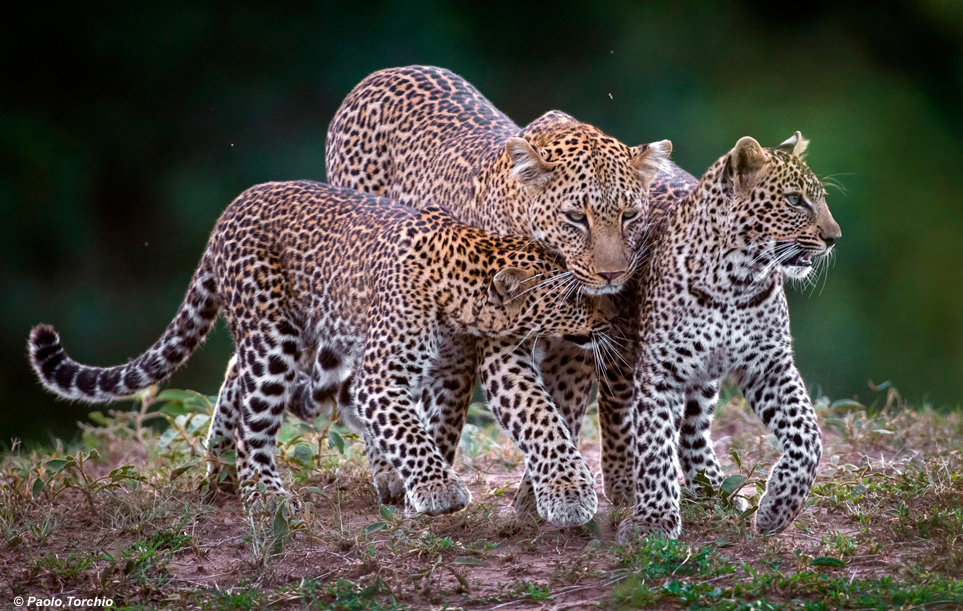
Image by Porini Camps guest Paolo Torchio
Could you imagine visiting Africa and leaving without having seen a herd of elephants? Or sighting all the iconic African wildlife species like Zebra, Giraffe or Rhino? What is on your “animal bucket list?” Your answer could play a huge part in where you go and when you travel. For instance, there are lots of Big Cats in the Mara Conservancies. The Mara is also the place to see the Great Wildebeest Migration.
If you aren’t entirely sure where your favorite animals are located, take a glance at this list to get a good feel of where you should go.
6. What kind of lodging experience are you looking for?
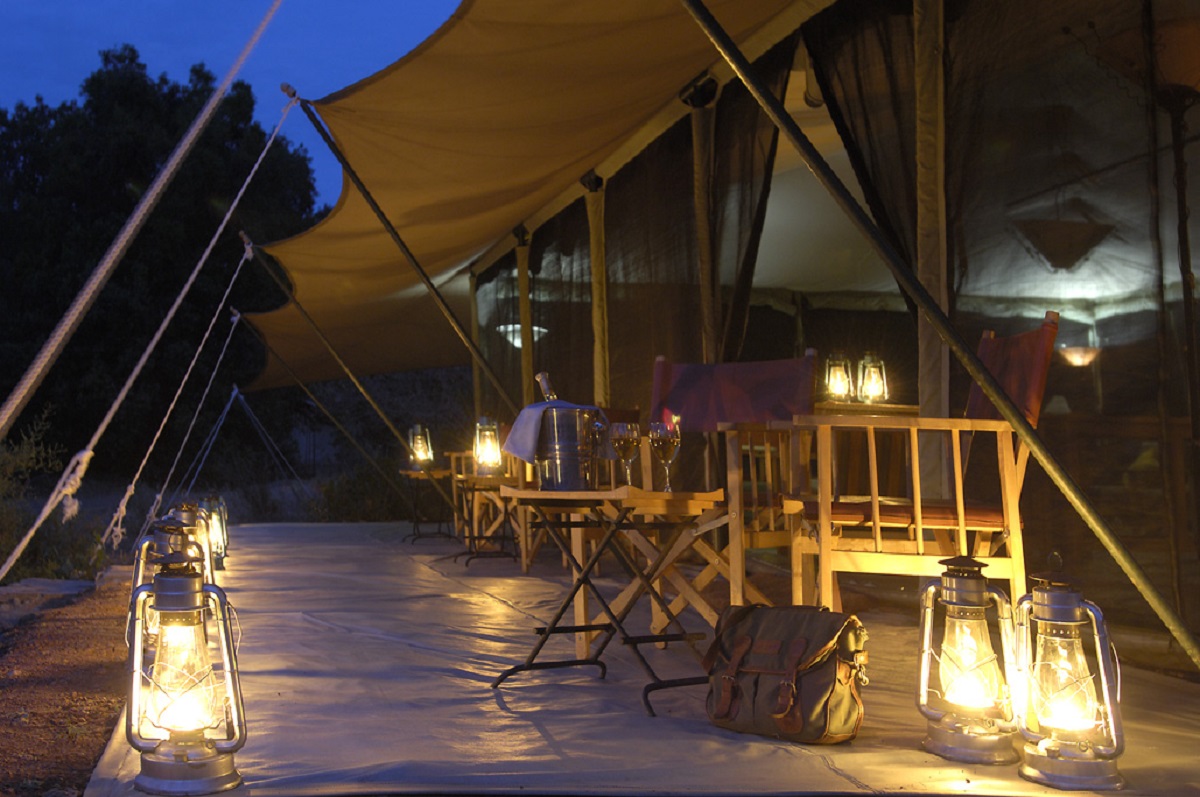
Take 360 degree virtual tours of some different camps
When it comes to choosing where you want to stay on safari, there are lots of considerations. Of course, the first is usually budget. Keep in mind that when you plan to stay can affect the cost as well. Prices will be higher in the more popular months such as July and August.
Another point to consider—some of the camps and lodges can be booked on a “game package rate” (to include game drives, meals, drinks, and transportation as a part of their price per night). And some camps and lodges are based on a Full Board basis only – with optional game drives and extras payable when you are there. So do be sure to check carefully what is included before you confirm your arrangements!
Next, think about the type of lodging you’d prefer. Do you like the thought of staying under the stars, able to hear the call of the wild? Or is the idea of a hotel more enticing? You can choose either one—or both—on your Kenyan safari.
Finally, do you want to make sure you leave a positive mark on the environment and its inhabitants? The Porini camps are committed to responsible tourism and take extraordinary measures to be eco-friendly and conserve natural resources.
7. Are you planning on adding any “extras” to your trip?
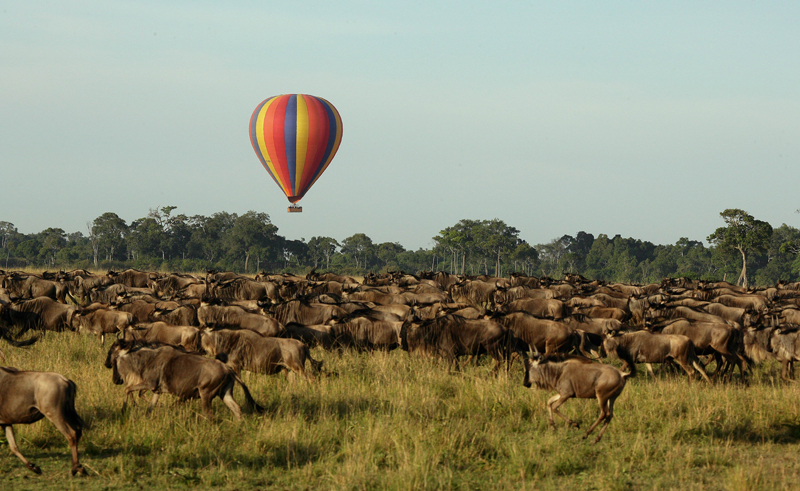
There are some awesome experiences you can add to any safari—but you need to book in advance. Imagine waking up before the sun, only to watch it rise from the same eye level as the birds. A tranquil hot air balloon ride over the savannah is the perfect way to see a side of Kenya that few will ever experience. Did we mention there’s champagne included?
Another amazing add-on: ending your safari adventure with a little R&R on the white sand beaches of the Indian Ocean. After your safari you can fly to the coast for a few days before flying back to Nairobi to connect to your home-bound flight.
8. What items and clothing should you pack?
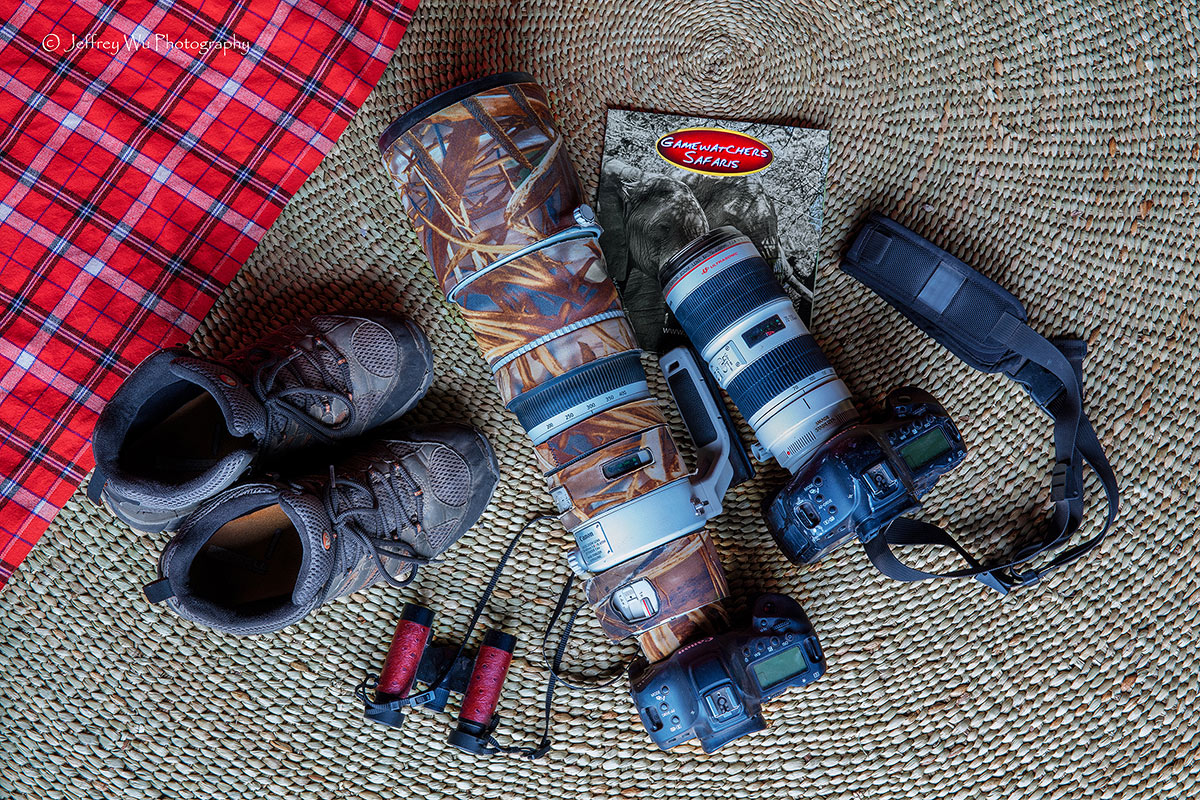
Light packing is required for your safari, if possible, as there are weight limits on planes, especially the smaller aircraft that will be taking you from camp to camp. However, if you are travelling elsewhere after your safari – such as to the Coast – many tour operators offer the ability to leave your main luggage in storage and you can travel lighter to the wildlife areas.
You’ll want to wear lots of greens and khakis, but nothing that looks like military-style camouflage-print, since that is reserved for security personnel. Simple shirts and shorts, chinos, and light jackets are great to bring. Sturdy walking shoes or trainers are a must as well as a pair of flip flops or sandals for wearing around camp. And you can’t forget a good safari sun hat!
If you are going to the highlands of Kenya such as to Ol Pejeta Conservancy then it can get chilly on early morning or evening game drives, so we recommend taking some warm items of clothing, such as fleeces or sweaters, which can be peeled off, when it gets hotter later in the day.
Don’t forget important documents (passport, health cards, airline tickets), medicines (prescriptions, malaria prophylaxis, motion sickness pills), and other necessities like toiletries, but don’t bring any fine jewelry or other valuable items.
Of course you will need your camera to capture the sights and scenes of safari. Our recommendations are here.
Finally, we recommend having your own pair of binoculars for each person travelling. A magnification of between 8x and 10x is ideal for most safari binoculars.
See our full recommended Packing List here.
9. What type of safari transport should you use?

You can either travel by aircraft or road—and road travel takes a lot more time than you’d expect. You can easily gobble up entire days of your trip just getting from camp to camp.
Air travel is infinitely preferable if there are more than a few miles between destinations. A fly-in safari conserves your precious time and is generally more comfortable all around.
Whilst on safari, you may see a range of different vehicles driving around. At the camps and lodges, open sided vehicles with high canvas roofs are used. These are perfect for wildlife viewing and photographic opportunities. Road safaris use closed sided vehicles with sliding glass windows and roof hatches, as these protect passengers from weather conditions and dust on the main roads.
10. What sort of preparations do you need to make before traveling to Africa?

Before you head to Africa, there are some essential preparations that can take a little time.
First, you’ll need a passport with at least six months’ validity from your departure date, as well as two open pages for your visas. Kenyan visas are US$ 50, and you must bring that in exact cash if you haven’t purchased it prior to your trip (read more details here).
Secondly, you may need a few jabs—most health professionals recommend immunizations for typhoid, hepatitis, and polio inoculations if you aren’t already up-to-date, and antimalarial medication is essential. Most antimalarials need a little lead time to be effective before you travel, so be sure to get instructions from your doctor. Avoid mosquito bites by using repellent and wearing appropriate clothes that cover skin in the evening.
Some other considerations include travel insurance, international phone plans, and currency.
11. What can you expect as a typical day on safari?
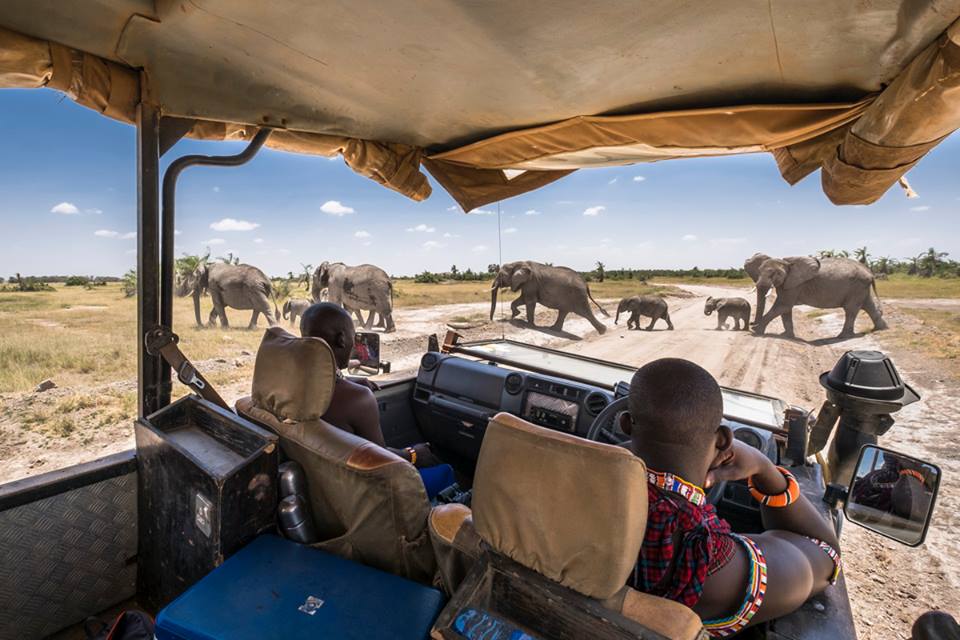
Wake up to the song birds gently telling you it’s time to start your day. Have a hot tea or coffee and light snack before embarking on your first game drive or guided walk for the day. Mornings are a wonderful time for wildlife viewing as they are cooler and many animals are active.
After your early morning activity, return to camp for a full breakfast / brunch. During the heat of mid-day, most animals are resting, so it’s time for you to do the same. Enjoy a refreshing shower, chat with fellow travelers, or catch up on that book you’ve been trying to read for ages.
Following afternoon tea, set out for another game drive, usually concluded with a sundowner and a picture-perfect view of the sun setting over the savannah. At night, there are night game drives to search for nocturnal animals.
Finish off your evening with dinner prepared by the camp chef and cold drinks or wine, and enjoy conversation with your fellow camp-mates around the camp fire.
See yourself on safari?
If you’re ready to get started planning your Kenya safari, get in touch today.
Or, if you are still researching your options then sign up for our free 6-part How to Book A Safari email series and discover how to make the most out of your time and budget.
on Wednesday 20th March 2019 at 09:29



